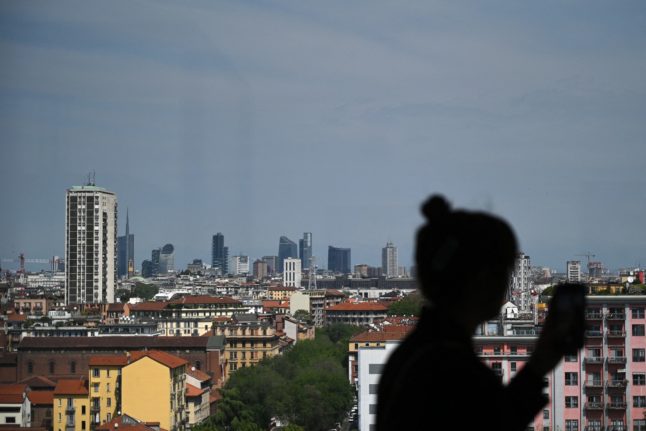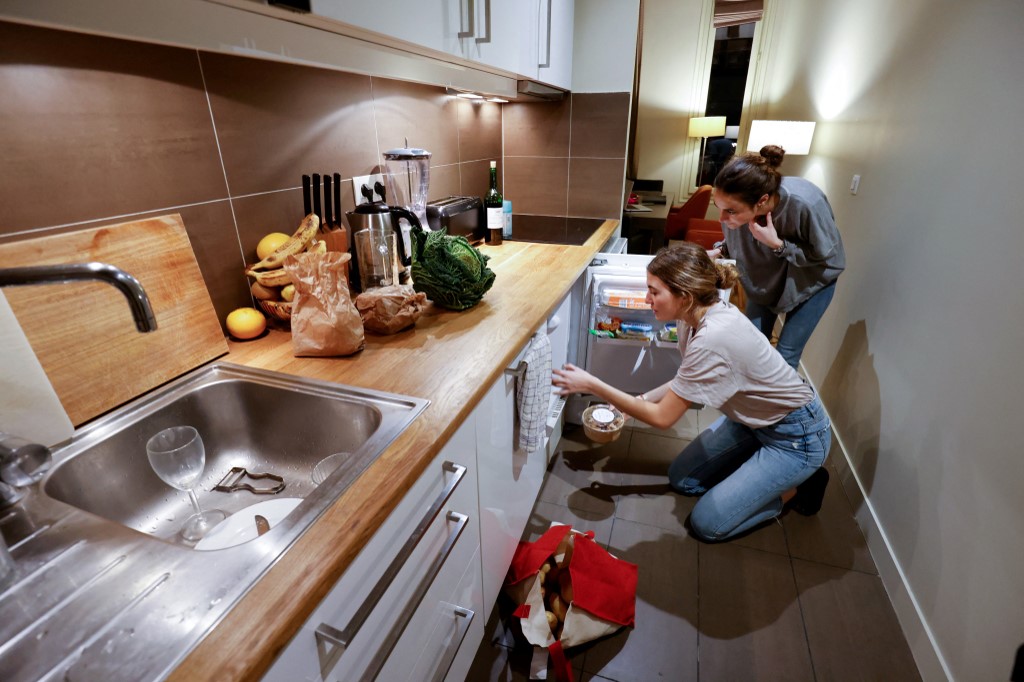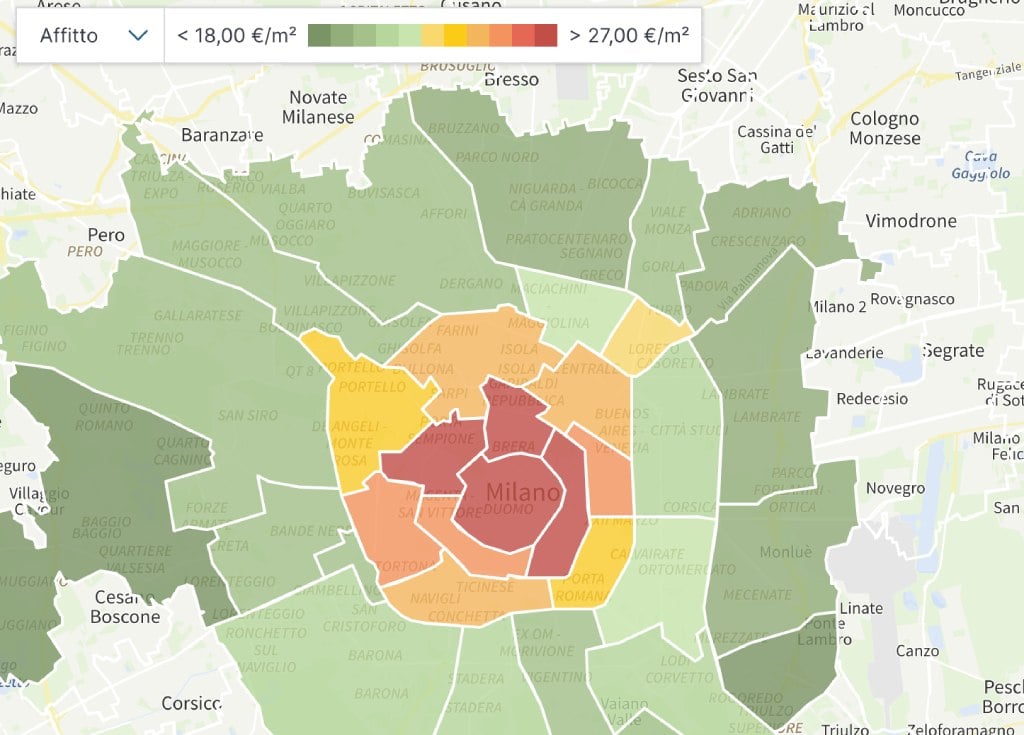1. Be legal.
This is so important, especially if you are a non-EU citizen. After the 90 days allowed by the visa waiver programme or tourist visa, if you stay in Italy without the proper documents you are illegal – regardless of your nationality.
Please make sure you obtain the relevant visa before moving permanently to Italy, since visas are not issued in Italy: you must go to the nearest Italian consulate in your country of origin or residency to obtain it.
READ ALSO: The essential articles to help you navigate life in Italy
EU citizens, meanwhile, should register as Italian residents at the town hall within 90 days of relocating to Italy. As part of the free movement of people within the EU, citizens of other European countries have the right to live and work in Italy automatically.
However, if an EU citizen does not have a job, the town hall where you request your residency is perfectly within its rights to ask for proof of self-sufficiency concerning financial means.
2. Start networking.
Unless you are moving to Italy as part of an intracompany transfer or a retiree, you will probably need to work. There are a lot of opportunities in the IT sector, but sectors that traditionally once yielded jobs, like banking, are laying off people like there is no tomorrow. It is a good idea to network with Italian headhunters on LinkedIn who specialize in the sector in which you would like to work.
REAL-LIFE STORIES:
- ‘How I got an elective residency visa to retire in Italy’
- ‘In the US you could never do this’: How an American opened his own Italian winery
- ‘How Little Britain helped me deal with Italian bureaucracy’
3. Be prepared for the cost of living.
Unless you choose to live in a small town, life in major markets like Rome or Milan can be expensive, especially if you want to live on your own. Expect to pay at least €850 for a small apartment in a big city.
Considering the average salary is €1,200, living on your own can be a challenge, and you will probably need a second job.
4. Weigh the pros and cons of the countryside.
I often receive inquiries from people who would like to move to a remote part of Italy, especially towns where houses are being offered for €1!
These can be great locations for anyone seeking a bucolic lifestyle, but two important things to remember are: 1) if you need to work there will be almost no work opportunities; 2) if you want to work online, the internet connection may not be the best. Make sure you do your due diligence before taking the plunge.
READ ALSO: How safe is living in the Italian countryside?

Photo: Ashley Bartner
5. Research real estate agents.
Apart from a few exceptions, many realtors in Italy do not update their websites very often – so the listings you see online may be no longer be available. Quite often the realtor may not have photos of the properties on file, and if they do, they may only have a few.
Italian landlords normally don’t like to give a realtor exclusivity on their property, which means that the same property can be listed with several agencies. As a result properties can quickly disappear from the market, even on the day you are scheduled to visit them.
READ ALSO:
- My Italian Home: The ups and downs of buying a property for retirement in a hilltop town
- The very best Italian towns to move to – according to people who live in them
- Why 2020 will be a good year to buy and renovate a home in an Italian town
Realtors in northern Italy, in cities such as Milan and Turin, normally take two months’ rent as commission (or a yearly percentage of the rent that usually works out more or less as two months’ rent). In the rest of Italy, the standard is one month’s rent.
6. Know your leases.
When a landlord enters a person-to-person lease agreement in Italy, they pay considerably less tax than if they sign a contract with a company. If a personal contract isn’t an option for you, it might reduce the number of properties you can see. Occasionally a property owner may be willing to accept a higher rent to offset the higher taxes associated with a corporate contract, but it cannot be guaranteed.
I always advise my clients to never rent a property in Italy without a proper lease contract. Once the contract has been signed by both parties, the landlord then has 30 days to register the contract with the tax authorities, he/she should provide you with a copy of the registration once completed.
READ ALSO: Renting in Italy: the crucial vocabulary you need to know

Photo: Maugli/DepositPhotos
7. Get the right help.
If you are going to be living in Italy long-term, please engage the services of a competent lawyer and accountant for any legal or tax advice you may need.
Many expats try to do it themselves, as they are under the impression that they can get away with things in Italy and the law is not enforced. This is not the case, and in my 30-plus years of assisting expats, I’ve seen hundreds end up in tears when the authorities come knocking.
READ ALSO: How to spend 24 hours living the Italian way
8. Retake your driving test.
Unless you come from a country that has a reciprocal agreement with Italy, after one year of being a resident in Italy you will need to take the Italian driving test. Unfortunately, this is only available in Italian (though you can also take the test in French or German if you are a resident in the areas of Italy where they also are official languages).
For example, a state-issued US licence will be valid for one year from when you request residency at the town hall, and not from when you receive confirmation of your residency.
READ ALSO: How to swap your British driving licence for an Italian one
The best thing to do is to apply at a driving school once your residency has been confirmed and you have your Italian ID card. The driving school will supply you with the driver’s manual that you will need to study to complete the course and initiate the exam. If you are taking Italian lessons, you may want to ask your teacher to concentrate the lessons around the manual so that you can be prepared for the test.
Depending on how old your EU licence is, and whether it has an expiry date, you should contact the Department of Motor Vehicles (Motorizzazione Civile) to see if you need to exchange it or not.

Photo: Andreas Solaro/AFP
9. Register your car.
Every EU and non-EU citizen who brings their foreign-registered car to Italy with them must register their car with the Italian authorities within 12 months of becoming an Italian resident. This process can be extremely time- and labour-intensive, especially if the vehicle needs modifications to be in line with European directives, and depending on where you have the service done, the cost is normally not less than €800 plus disbursements.
Please also note that insurance companies in Italy are not normally willing to insure a foreign-registered car; therefore, if you are planning on living in Italy long-term, it is highly advisable to register your car here. Right-hand drive cars also present challenges in Italy, especially with insurers.
10. Stay clear of the moaners.
You simply do not have the time to hang out with expats who are constantly hating on Italy and Italians: they will sap your energy and chip away at your enthusiasm for why you moved.
Just like you should avoid the moaners, don’t overly focus on the negatives in Italy. As much as you can, focus on all the wonderful aspects of Italy and be grateful for the fact that you can experience it firsthand.
READ ALSO: ‘How I fell in love with Naples, a city full of contrasts’

Photo: Ana Stanciulescu/Flickr
Relocating to a foreign country can be challenging and Italy is no exception. Regardless of whether you are moving here under your own steam or as part of an intracompany transfer, the same issues of culture shock, isolation and bureaucracy can still come into play. To help you to live the most successful life possible in Italy, I believe it is very important for you to be aware of the ten must-knows that I have just detailed above.
Enjoy your time in Italy!
Based in Rome, Damien O’Farrell is a life and expat coach specializing in relocation to Italy. This article was originally published in 2018 and is an edited version of a post originally published on his website. Find out more here.
Do you have any advice to add? Get in touch with us by email.





 Please whitelist us to continue reading.
Please whitelist us to continue reading.